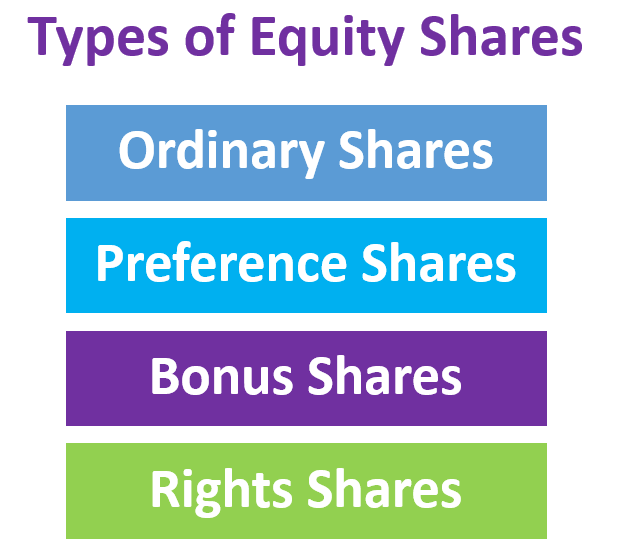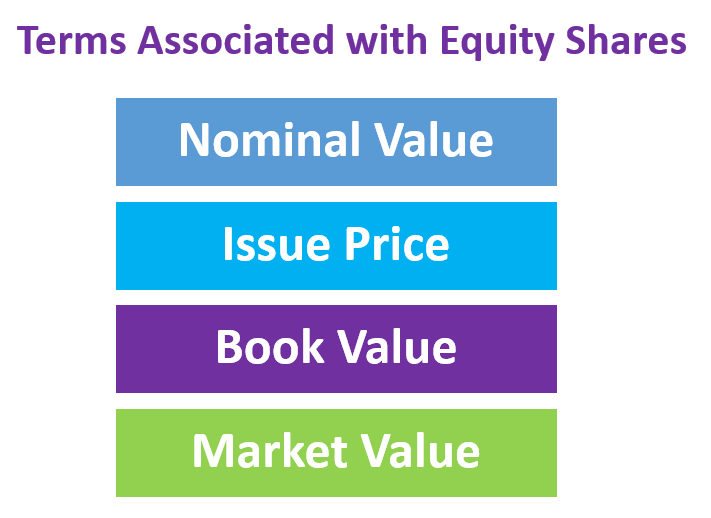What are Equity Shares?
Equity shares, also known as ordinary shares, are stocks that shareholders can buy to receive ownership of a company. The proportion of their ownership depends on the fractional number of shares they hold of the total shares issued by the company. These shares also usually come with voting rights, which allows the holder to take part in the company’s decision-making process.
Equity shares represent paid-in capital and additional paid-in capital for companies. These shares constitute a company’s equity capital or finance. Similarly, equity finance is any funds that a company collects from its shareholders. Each share has a nominal value, which is the minimum amount for which it trades in the market. Most of the time, however, equity shares may trade about this price.
In short, equity shares represent the long-term financing that companies collect from their shareholders. Companies issue these shares to the public. Usually, these shares are irredeemable. Therefore, holders cannot receive a refund for them, but they can get regular dividend payments or capital gains. Shareholders also receive a share in the company’s assets. However, it also includes any liabilities associated with it.
What are the types of Equity Shares?
There are several types of equity shares that companies may use to raise capital. Usually, these include ordinary shares or common shares. However, it may also consist of other shares, such as preferred equity shares, bonus shares, or right issue shares.

Ordinary Shares
Ordinary shares are stocks issued by a company to raise capital to meet long-term obligations. These shares come with the ownership of a company’s assets. However, these also come with associated liabilities. Ordinary shares also come with a promise of dividend payments when the company allows it. On top of that, these shares include voting rights that shareholders can utilize in decisions.
Preference Shares
Preference shares are a type of equity share. However, these receive a preference over ordinary shares. Shareholders that hold these shares receive guaranteed payments or dividends. On top of that, they have a preferred claim over a company’s assets. Even when a company issues a dividend, preference shares will receive these first before ordinary shareholders.
Preference shares come with a disadvantage. Preference shareholders do not receive any voting rights. Therefore, they cannot participate in a company’s decision-making process. However, some shares may allow shareholders to take part in it. Some participating preference shares also come with an entitlement to a specific amount of profit.
Bonus Shares
Bonus shares are when a company issues additional shares to shareholders without any charge. Shareholders receive free shares based on their current ownership percentage. However, the company issuing bonus shares does not get any funds. Instead, bonus shares come from a company’s retained earnings. These are a type of profit distribution that shareholders can get.
Rights Shares
Rights shares are when a company issues shares to investors at discounted prices. Usually, the number of right shares that investors can get depends on their current holding in the company. For rights shares, companies get finance. However, this finance is lower than what the company would get if it issued its shares at market value.
What are Some Terms Associated with Equity Shares?
There are various terms associated with equity shares, specifically with value. These include the nominal value, the issue price, the book value, and the market value.

Nominal Value
A share’s nominal value is its value in a company’s books of accounts. Usually, companies define this amount in the corporation’s charter. In some jurisdictions, companies cannot issue shares below this amount. A share’s nominal value is also crucial in distinguishing between share capital and share premium for accounting purposes.
Issue Price
The issue price of equity shares defines the price at which the company issues it to the public. This amount may be higher than the nominal value. Any difference between the issue price and the nominal value of a share constitutes the additional paid-in share capital for a company. This difference is also known as share premium.
Book Value
Equity shares’ book value is the amount that companies mention in their balance sheet. This amount comes by adding up a company’s paid-up capital with its reserves and surplus. After that, it deducts any losses from the amount to reach the book value. A company’s equity shares’ book value is critical for various analyses and calculations.
Market Value
Equity shares’ market value constitutes the amount for which it is traded in the stock exchange. This value usually comes from the market. Therefore, companies cannot control it. Similarly, it is not the value that companies receive. Instead, it is the price that investors pay to receive a single share in the market. Usually, this amount depends on the company’s performance and other external factors.
Conclusion
Equity shares represent any capital received by companies through their shareholders. It serves as finance for the company. In exchange, the shareholder becomes part-owner of the company. There are several types of equity shares. These include ordinary, preference, bonus, and right shares. Similarly, equity shares have several values associated with them, as mentioned above.
